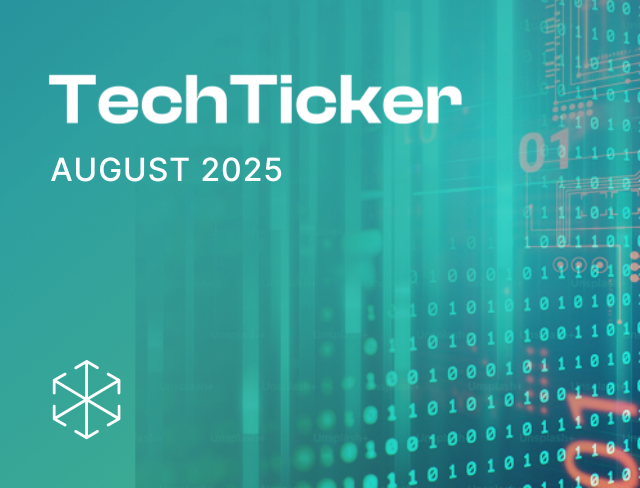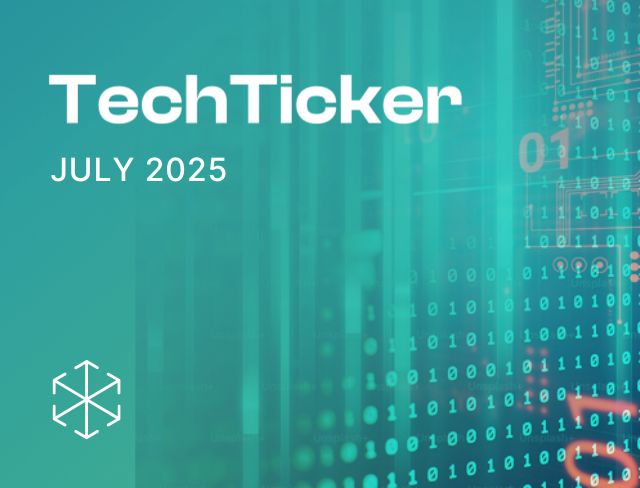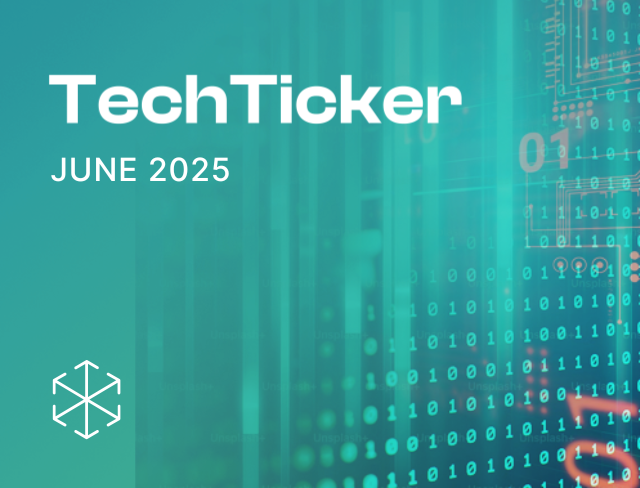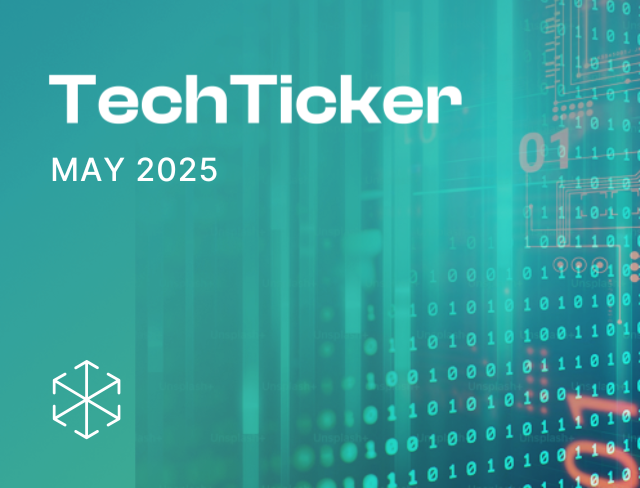Welcome to our monthly Tech Ticker! Here is your cheat sheet to the latest in tech law and policy.

Digital media, online content and intermediary liability
The government of India notified the Information Technology (Intermediary Guidelines and Digital Media Ethics Code) Rules, 2021, which prescribe an umbrella set of guidelines for intermediaries including social media intermediaries (SMI), OTT streaming and digital news publishers. SMIs will be regulated by the Ministry of Electronics and Information Technology (MeitY), and OTT and digital news platforms by the Ministry of Information and Broadcasting (MIB). The guidelines will supersede the rules enacted in 2011. The process to revisit the guidelines was initiated in 2018, with government inviting comments on the draft Information Technology [Intermediaries Guidelines (Amendment) Rules], 2018. While the amendment rules prescribed obligations for intermediaries, digital news and streaming platforms have been included under the new guidelines for the first time (with no public consultation on the issue).
All intermediaries will have to institute a grievance redressal mechanism, provide assistance to law enforcement agencies, retain data for investigation purposes, among other things. An SMI with more than 50 lakh users will qualify as a significant SMI (SSMI) and have to comply with additional obligations including tracing the first originator of the message in the interest of sovereignty and integrity of India. OTT streaming and news platforms will have to comply with a code of ethics through a three-tier regulatory machinery, with an internal complaint redressal mechanism at the first level, a self-regulating body headed by a judge of a high court/the Supreme Court or an independent eminent person to provide guidance/refer content to the MIB for blocking at the second level, and an inter-departmental committee in the MIB with emergency powers to block access to OTT and news content at the apex level. In 2020, the MIB was granted a say over digital media and speculations were rife that the ministry will exercise its power to regulate online streaming content. The guidelines invoked the blocking powers under section 69A of the IT Act to issue the code of ethics, which the government clarified was always its prerogative and should not be viewed as a new provision under the notified guidelines. Read Aman’s views to the Firstpost on how the MIB bypassed the need to bring in fresh legislation to regulate the OTT and news platforms by using the IT Act.
In other news, the Advertising Standards Council of India (ASCI) released the draft guidelines for influencer advertising on digital media platforms for comments till 08 March 2021. With a barrage of advertising, promotional and independent user generated content being circulated on platforms like Instagram, YouTube, and Twitter, the guidelines aim to enable the users to distinguish between different categories of content. The draft requires influencers and advertisers to add a pre-approved label (#ad, #collab, #promo, #sponsored, or #partnership) for advertising content to disclose the promotional nature of the post. Read a summary of the draft guidelines, here.

Data and privacy
The Joint Parliamentary Committee (JPC) on the Personal Data Protection Bill (PDP Bill) will now furnish its report during the first week of the second part of the budget session of Parliament, which commences from 08 March, 2021. Earlier in September 2020, the JPC was granted an extension to present its report on the PDP Bill by second week of the winter session 2020 (December), which did not take place due to COVID-19. See our writing on data governance, here.

Fintech
To improve the safety and security of digital payment products, the central bank released the Reserve Bank of India (Digital Payment Security Controls) Directions, 2021. The directions are applicable to scheduled commercial banks, small finance banks, payments bank and credit card issuing NBFCs (regulated entities), and prescribe security protocols to be adopted by such entities. Additionally, regulated entities will be able to collaborate with players in the digital payments ecosystem including payment operators, gateways, aggregators, and third-party service providers under norms/criteria set out under the directions.

Blockchain and cryptos
The Internet and Mobile Association of India (IAMAI) finalised a code of conduct for the members of its blockchain and crypto committee in India. The code prescribes a set of standards for the members and directs them to comply with the Reserve Bank of India’s (RBI) norms on KYC and anti-money laundering. Additionally, the code sets out data retention, external audits, and customer protection related obligations for the members. This comes after the legislative agenda of the budget session of Parliament listed a bill to introduce a ban on private cryptocurrencies.
In February 2021, the MeitY released the draft national strategy on blockchain, which proposed to implement a ‘national level blockchain framework’ and develop specific regulations for blockchain. We submitted a representation to the government on the draft strategy highlighting the need for an inclusive framework on blockchain in India and to revisit data localization requirements, among other things.
For more fintech developments, subscribe to our new monthly newsletter- FinTales! Read past issues here, and subscribe by emailing contact@ikigailaw.com with the subject “Sign me up for FinTales”.

Digital gaming
We are delighted to announce the launch of our report ‘Unpacking a Billion Dollar Industry: Digital Games and Sports in India’. The IAMAI released it, and we authored and designed it. The report examines the different types of digital games and sports in India, how society perceives digital games, the legal challenges and policy opportunities in the sector. To make the report comprehensive, we engaged with a diverse set of stakeholders including gamers, psychologists, investors, game publishers, and several gaming companies for their inputs. We thoroughly enjoyed drafting it, and we hope you do too while reading it!
In other news, the minister of state for youth affairs and sports Mr. Kiren Rijiju in response to a question on digital gaming and esports during the budget session acknowledged that esports was an emerging sector in the country. He also stated that the government understood that esports was skill based and was different from gaming and gambling, which are chance based. In India, gaming is often perceived to be a homogeneous block where terms like gaming, gambling, betting, and lottery are used interchangeably. This confuses users, companies, regulators, and other stakeholders. In a piece on Medianama, Sarthak, Kruthi, and Nehaa examine the real money gaming landscape in India, the laws and practices that make digital games of skill legal, and the need for a central legislation to regulate games of skill.

Health-tech
The minister of chemicals and fertilizers Mr. Sadananda Gowda announced an INR 10,000 crore production linked incentives scheme for pharmaceuticals and medical devices sector to boost local innovation and manufacturing. A corollary of the increased policy push in these areas is the need for a robust regulatory framework to assess the safety and efficacy of the drugs and devices manufactured. In a series of posts, Shambhavi decodes the clinical investigation process in the Medical Devices Rules, 2017, and highlights two unaddressed aspects of clinical investigation- risk management and software validation.

Space
Recently, we advised Pixxel Space on their contract to launch their first private remote sensing satellite with the Indian Space Research Organisation (ISRO). The department of space (DoS) rolled out several reforms including the draft space-based remote sensing policy to liberalise the space industry for private players, and Pixxel’s launch was one of the first few missions to take shape as a result of these reforms. Also, read our comments to the DoS on the remote sensing policy.
That’s it from us. We’d love to hear from you. Tell us what you think about the developments we covered. Or if you’d like us to cover another development. Write to us at contact@ikigailaw.com.









